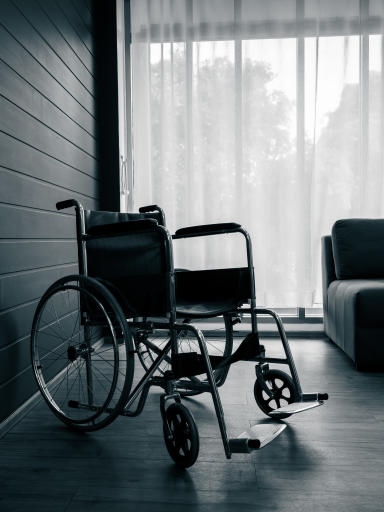Can You Sue a Nursing Home for Sexual Abuse?

The prevelance of elder sexual abuse is sadly higher than many people realize. The term “elder sexual abuse” refers to any nonconsensual physical or sexual contact inflicted on a person over the age of 65. While elder sexual abuse can happen in many places, The Pennsylvania Coalition Against Rape (PCAR) reports that 83% of all victims of this abuse reside in nursing home facilities. Additionally, many experts suspect that this form of abuse is vastly underreported due to the diminished mental faculties of many elderly victims.
If you are the spouse, child, or sibling of a nursing home resident who has experienced sexual abuse, you may be their only advocate. When a nursing home fails to implement reasonable safeguards against harm, it may be legally liable for any resulting abuse. With the help of a legal professional, you can help hold your loved one’s negligent nursing home accountable for the harm they have caused by failing to prevent sexual abuse at their facility.
Signs of Elder Sexual Abuse
Unfortunately, many elderly nursing home residents are abused precisely because of difficulty communicating and asking for help. However, while confusion, memory loss, or diminished verbal abilities may make it difficult for an abused nursing home resident to tell their loved ones they are experiencing sexual abuse, there are other ways they may attempt to communicate their suffering.
If you notice any of the following signs in your loved one in a nursing home, it is best to seek immediate assistance, alert the authorities, and remove your loved one from the facility. While not all of the following symptoms are evidence of sexual abuse, they are all warning signs that should be investigated.
Some of the most common signs of elder sexual abuse include the following:
Pelvic injury
Discomfort while sitting
Bleeding, bruising, or pain of the genitals or anus
Panic attacks
Stained or damaged underwear
Development of a sexually transmitted disease
Suicidal behavior
Overly sexual behavior
While these symptoms can certainly be indicators of elder sexual abuse, this is not a comprehensive list. If a nursing home resident suddenly begins to exhibit new symptoms or behaviors that are otherwise unexplainable, it is important to gather as much information as possible.
Who Is Most at Risk for Sexual Abuse in Nursing Homes?
Gender is one of the first factors to consider when determining who is at risk for sexual abuse. Statistics from PACR demonstrate that older adult women are 6 times more likely than older adult men to be sexually abused. This does not mean, however, that sexual abuse does not happen to men in nursing homes. Regardless of gender, victims of elder sexual abuse deserve justice.
Another major factor that may make someone more likely to suffer this form of abuse is having a mental or physical disability. Elders with dementia, for example, are especially at risk for abuse. Other at-risk groups include those who have physical, intellectual, or developmental disabilities. Because people in these groups may have difficulty articulating or remembering their abuse, the abuser may be able to continue their abuse undetected.
In general, these are the factors that make someone at risk for elder sexual abuse. However, any nursing home resident could experience abuse, regardless of whether they fit into one of the above at-risk categories. If nursing home staff or a resident’s loved ones suspect that sexual abuse has taken place, they should act immediately.
Causes of Sexual Abuse in Nursing Homes
Nursing home facilities are responsible for doing everything within their power to prevent harm (including sexual abuse) from befalling their residents. In many cases, elder sexual abuse comes about through a combination of nursing home neglect and aggressor violence. By avoiding some of the most common causes of elder sexual abuse, nursing homes can prevent unimaginable pain and suffering.
No Background Checks
In no circumstances should anyone with a record of sexual abuse be allowed to work in a nursing home with vulnerable people. If a nursing home fails to run thorough background checks on a new hire, it may inadvertently enable a predator to slip through the cracks. If sexual abuse occurs at a facility because the nursing home did not adequately screen an employee, they are partly to blame for the resulting harm.
No Training
It can take a trained eye to recognize the signs of elder abuse. If nursing home staff are not adequately trained, they may fail to help a resident in need. Nursing home facilities have an obligation to provide thorough training to help workers, and staff recognize warning signs and take preventative measures.
Failure to Address Complaints
If someone brings up their concerns that a resident is being sexually abused (whether it is the resident’s family member or a nursing home staff member), the nursing home has a responsibility to investigate these claims thoroughly. If the nursing home fails to address complaints promptly, they could be in serious violation of state and federal law.
Access by Aggressors
First, elder sexual abuse is perpetuated by sexual abusers. Abusers can take many forms, but in the context of a nursing home, aggressors could be staff members, outside visitors, or other nursing home residents. Depending on the circumstances, if it is established that the nursing home was to blame for exposing their residents to sexual predators, they could face legal and financial repercussions.
How To Recover Compensation for Damages
Sexual abuse takes a toll on a person mentally, emotionally, and physically. In many cases, elder sexual abuse is accompanied by additional physical and mental abuse. While victims may suffer significant physical injury, typically, the worst effects of elder sexual abuse are felt on an emotional or psychological level. While no amount of money can erase what they have suffered, victims of elder sexual abuse have the right to seek financial compensation for their physical and emotional suffering.
How do victims go about seeking compensation for these damages? It is important to note that sexual abuse of any kind is a criminal offense and could result in criminal charges. A criminal case, while it may result in the conviction and incarceration of the abuser, will likely not result in any financial restitution for victims. Families of abused elders may also file a civil suit against the offender to seek additional financial recourse. In addition, a civil suit may be filed against the nursing home if their failure to conduct background checks, implement safety measures, or take prompt action resulted in the sexual abuse of a resident.
Find the Best Nursing Home Abuse Lawyer for Your Case
Your loved one deserves justice for their physical, emotional, and spiritual pain. It is important to contact a legal representative as soon as possible to hold the aggressor accountable and receive compensation for your family’s economic and non-economic losses. However, finding a qualified attorney with experience representing elder abuse victims in your area can be difficult alone. Luckily, Expertise.com’s concierge service can connect you with a quality legal professional in your area. To get in touch, call 848-BookPro.
Expertise.com StaffAuthor
Step into the world of Expertise.com, your go-to hub for credible insights. We don't take accuracy lightly around here. Our squad of expert reviewers, each a maestro in their field, has given the green light to every single article you'll find. From rigorous fact-checking to meticulous evaluations of service providers, we've got it all covered. So feel free to dive in and explore. The information you'll uncover has been stamped with the seal of approval by our top-notch experts.




